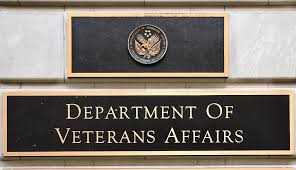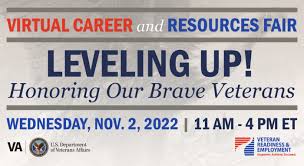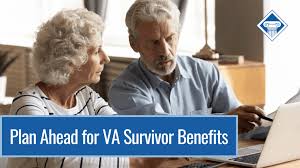The Department of Veterans Affairs (VA) benefits program is a crucial resource that provides support and assistance to the brave men and women who have served in the United States military. With a wide range of benefits available, the VA aims to ensure that veterans and their families receive the care they deserve for their sacrifices.
One of the primary benefits offered by the VA is healthcare. The VA operates a vast network of hospitals, clinics, and medical centers across the country, providing veterans with access to comprehensive medical services. From routine check-ups to specialized treatments, the VA healthcare system covers a wide range of needs. This benefit not only helps veterans maintain their health but also offers peace of mind knowing that they have access to quality care.
In addition to healthcare, the VA offers disability compensation for service-related injuries or illnesses. This benefit provides financial assistance to veterans who have experienced disabilities as a result of their military service. The compensation amount is determined based on the severity of the disability and its impact on daily life activities. This support goes a long way in helping veterans adapt and live fulfilling lives despite their injuries.
Another critical benefit provided by the VA is education assistance. Through programs like the Post-9/11 GI Bill, veterans can receive financial support for pursuing higher education or vocational training. This benefit covers tuition fees, housing allowances, and even provides funds for textbooks and supplies. By investing in education, the VA empowers veterans to transition into civilian life successfully and build rewarding careers.
The VA also offers home loan guarantees, helping veterans achieve homeownership or refinance existing mortgages at favorable rates. These guarantees provide financial security and stability for veterans looking to establish roots after their military service.
Furthermore, mental health services are an essential aspect of VA benefits. The emotional toll that military service can take on individuals is significant, which is why the VA provides counseling services for post-traumatic stress disorder (PTSD), depression, anxiety, substance abuse disorders, and more. The VA’s commitment to mental health support ensures that veterans receive the care they need to overcome these challenges and lead fulfilling lives.
Navigating the VA benefits system can be complex, but there are resources available to assist veterans in understanding and accessing their entitled benefits. Local VA offices, veteran service organizations, and online resources provide guidance and support throughout the process.
The Department of Veterans Affairs benefits program is a testament to the nation’s commitment to honoring those who have served. By providing healthcare, disability compensation, education assistance, home loan guarantees, and mental health services, the VA ensures that veterans receive the care and support they deserve. It is our duty as a society to ensure that those who have selflessly defended our freedoms are taken care of when they return home.
Commonly Asked Questions About Department of Veterans Affairs Benefits
- Do all Veterans get VA benefits?
- Do wives of deceased Veterans benefits?
- How do I find out my VA benefits?
- What are Veterans affairs benefits?
Do all Veterans get VA benefits?
Not all veterans automatically receive VA benefits. Eligibility for VA benefits is determined by various factors, including the length and type of military service, discharge status, and specific requirements for each benefit program.
To qualify for VA healthcare benefits, veterans generally need to have served in active duty and received an honorable discharge. However, there are certain exceptions for those with other types of discharges or service-related conditions.
For disability compensation, veterans must demonstrate that their disabilities are connected to their military service. The severity of the disability and its impact on daily life activities will also be considered in determining eligibility.
Education assistance programs like the Post-9/11 GI Bill have specific requirements related to the length of service and the period in which the veteran served. These programs often have time limitations for eligibility as well.
Home loan guarantees are available to many veterans, but there may be certain criteria regarding length of service and discharge status that need to be met.
It’s important to note that each benefit program has its own set of eligibility requirements. Veterans who are unsure about their eligibility or want more information should contact their local VA office or visit the official VA website for detailed guidance.
While not all veterans may qualify for every benefit program, it is essential for all veterans to explore their options and understand what benefits they may be eligible for. The VA is committed to assisting veterans in accessing the benefits they deserve, so it’s worth exploring the possibilities even if initial eligibility criteria aren’t met.
Do wives of deceased Veterans benefits?
Yes, the Department of Veterans Affairs (VA) provides benefits to the surviving spouses of deceased veterans. These benefits are designed to support and assist the spouses in recognition of their loved one’s service and sacrifice.
One significant benefit available to surviving spouses is the Dependency and Indemnity Compensation (DIC) program. DIC provides a monthly monetary payment to eligible surviving spouses whose veteran spouse died as a result of a service-related injury or illness. This financial support can be crucial in helping the surviving spouse maintain financial stability and meet their basic needs.
In addition to DIC, surviving spouses may also be eligible for other benefits such as healthcare through the Civilian Health and Medical Program of the VA (CHAMPVA). CHAMPVA offers medical coverage similar to that provided by TRICARE, which is available to active duty military personnel and their families.
Surviving spouses may also qualify for educational assistance through programs like the Survivors’ and Dependents’ Educational Assistance (DEA) program. This program provides funding for education and training opportunities, including college degrees, vocational courses, apprenticeships, and more.
Furthermore, surviving spouses may be eligible for home loan guarantees through the VA Home Loan program. These guarantees can help them secure favorable mortgage rates or obtain loans for purchasing or refinancing homes.
It’s important to note that eligibility requirements for these benefits may vary based on factors such as the cause of death, length of military service, and other circumstances. The VA has dedicated staff members who can provide guidance and assistance in determining eligibility for specific benefits.
If you are a surviving spouse of a deceased veteran, it is highly recommended to reach out to your local VA office or visit the VA’s official website to learn more about the specific benefits you may be entitled to receive. The VA is committed to supporting surviving spouses and ensuring they receive the assistance they deserve after their loved one’s passing.
How do I find out my VA benefits?
To find out your VA benefits, follow these steps:
- Visit the official website of the Department of Veterans Affairs (VA) at www.va.gov.
- On the homepage, you will find a menu bar with various options. Click on “Benefits” to access information about the different types of benefits available.
- Under the “Benefits” section, you will see a list of categories such as healthcare, disability compensation, education and training, home loans, and more. Click on the category that corresponds to the benefit you are interested in.
- Once you select a category, you will be directed to a page with detailed information about that specific benefit. This page will provide an overview of the benefit and explain eligibility requirements, application processes, and any supporting documents or forms that may be needed.
- If you are unsure which benefit applies to your situation or if you have questions about your eligibility, click on “Contact Us” or “FAQs” for further guidance. The VA website offers comprehensive resources to help answer common questions and provide assistance.
- Additionally, consider reaching out to your local VA regional office or contacting the VA directly through their toll-free number at 1-800-827-1000. Trained professionals are available to assist you in understanding and accessing your entitled benefits.
- It is also worth considering seeking assistance from veteran service organizations (VSOs) or accredited representatives who specialize in helping veterans navigate the VA benefits system. These organizations can provide personalized guidance and support throughout the process.
Remember that gathering necessary documents such as discharge papers (DD-214), medical records, and other relevant documentation may be required when applying for certain benefits. Be prepared to provide this information when necessary.
By utilizing these resources and reaching out for assistance as needed, you can gain a better understanding of your VA benefits and take advantage of the support available to you as a veteran.
What are Veterans affairs benefits?
Veterans Affairs benefits refer to the range of services and support provided by the Department of Veterans Affairs (VA) to eligible veterans, active duty military personnel, and their families. These benefits are designed to recognize and honor the sacrifices made by those who have served in the United States military.
The VA benefits program offers a comprehensive array of services across various areas, including healthcare, disability compensation, education assistance, home loans, vocational rehabilitation, life insurance, burial benefits, and more. Here are some key categories of VA benefits:
- Healthcare: The VA operates an extensive network of medical facilities that provide comprehensive healthcare services to veterans. This includes preventive care, specialty care, mental health services, prescription medications, and access to medical professionals.
- Disability Compensation: Veterans who have suffered service-related injuries or illnesses may be eligible for disability compensation. This financial assistance is based on the severity of the disability and its impact on daily life activities.
- Education Assistance: Programs like the Post-9/11 GI Bill offer financial support for veterans pursuing higher education or vocational training. This benefit covers tuition fees, housing allowances, and funds for textbooks and supplies.
- Home Loans: The VA provides loan guarantees that make it easier for veterans to obtain home loans or refinance existing mortgages at favorable rates. These guarantees offer financial security and help veterans achieve homeownership.
- Vocational Rehabilitation: The VA offers vocational rehabilitation programs to assist disabled veterans in transitioning back into civilian employment through counseling, job training, resume building, and job placement assistance.
- Life Insurance: The VA offers various life insurance options for veterans and their families to provide financial protection in case of death or disability.
- Burial Benefits: Veterans are entitled to burial benefits that include burial in national cemeteries with military honors or financial assistance for burial expenses in private cemeteries.
These are just a few examples of the many benefits available through the VA. It is important for veterans and their families to explore the specific benefits they may be eligible for based on their service, needs, and circumstances. The VA provides resources, assistance, and guidance to help veterans navigate the benefits system and access the support they deserve.




